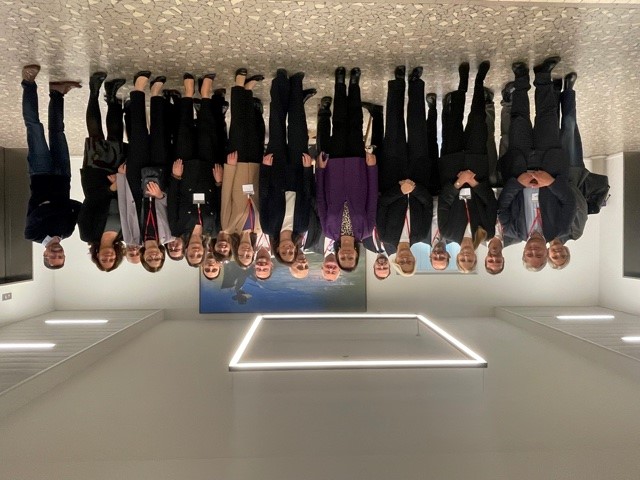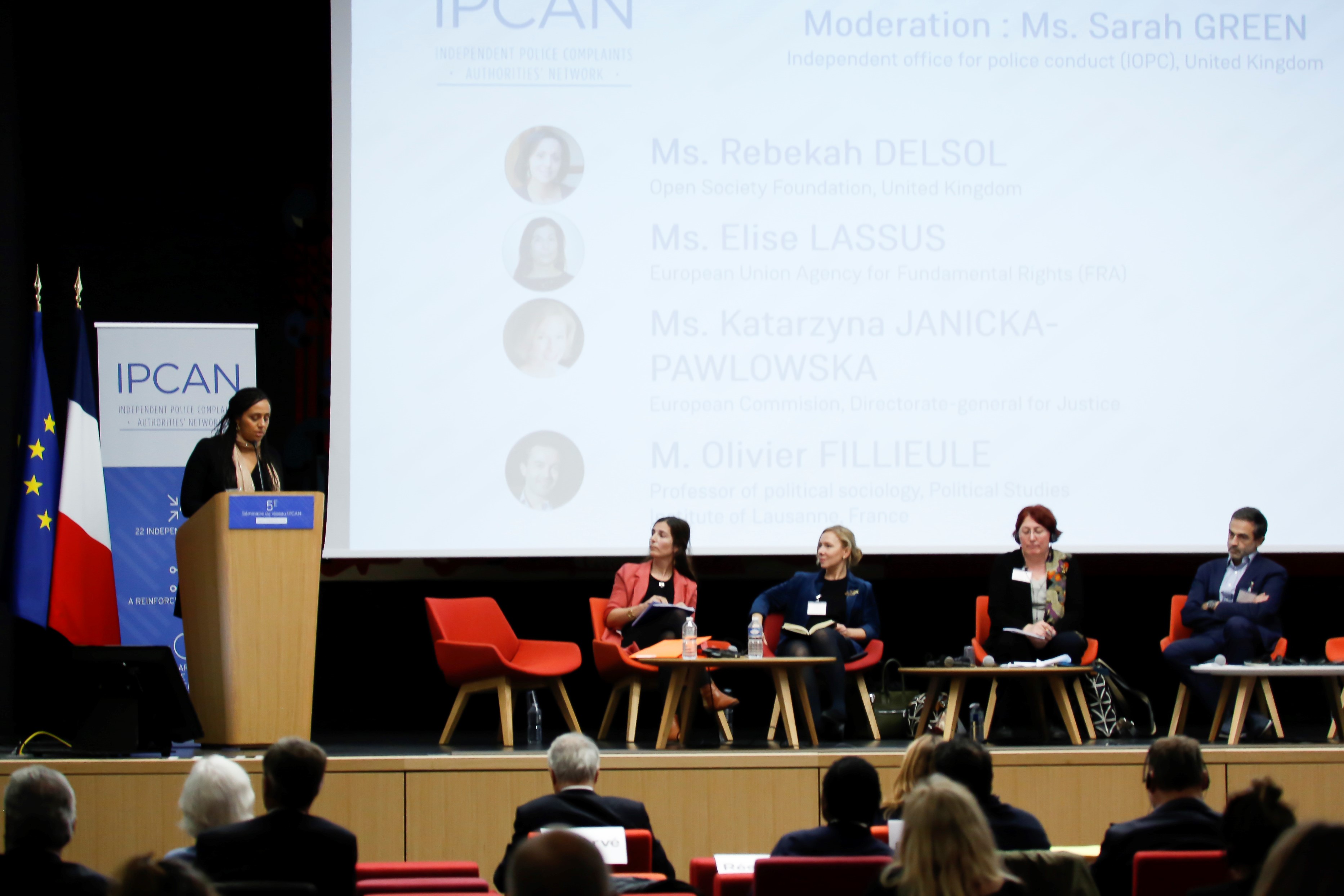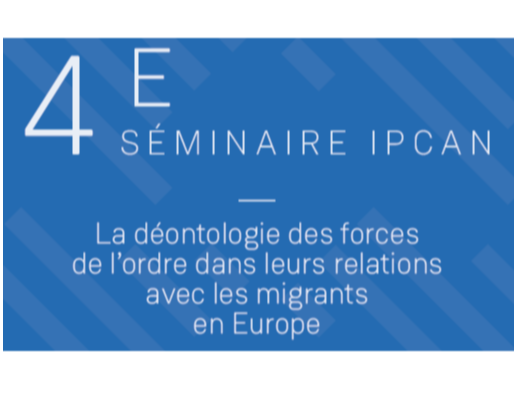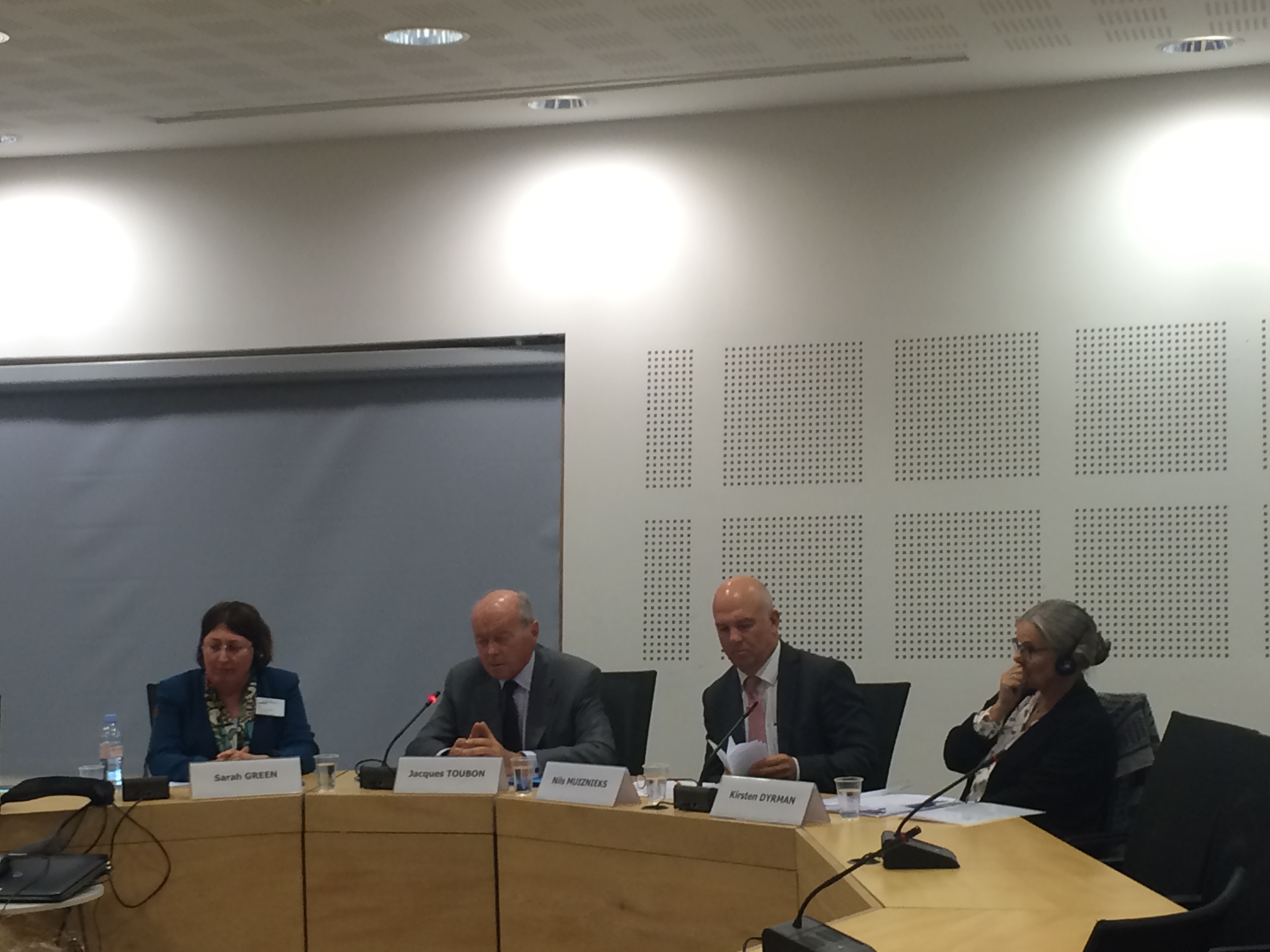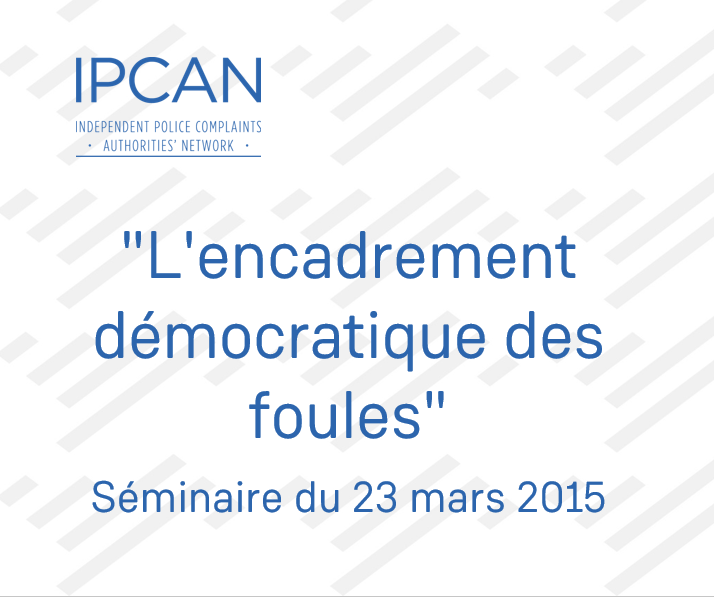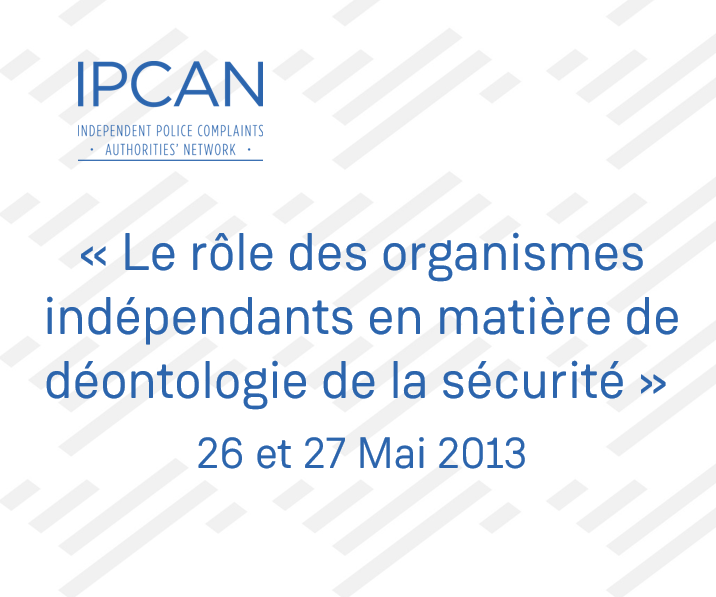Following the IPCAN (Independent Police Complaints Authorities’ Network) seminar organized by the Defender of Rights and the FRA (European Union Agency for Fundamental Rights) last autumn, We publish today the report of two days of exchanges on police-population relations and challenges. The document summarizes the latest research, studies and many examples of national practices, and synthesizes the views of more than a hundred practitioners from Europe. This publication is complemented by a joint statement from several members of the IPCAN network calling for the implementation of around twenty recommendations to improve police-population relations.
Organised on 17 and 18 October 2019, the 5th IPCAN seminar entitled “Police-Population Relations: Challenges and Practices” was held in Paris in the participation of representatives of police forces, public authorities, external law enforcement agencies, lawyers, victim support services, researchers, as well as representatives of international organisations and European Union institutions. Bringing together 150 experts over two days, the aim of the meeting was to analyse the interactions between the police and the population, the situations that can lead to tensions, and the actions implemented to strengthen relations between the police and the population.
The plenary sessions and round tables focused on three themes:
- Discrimination and profiling, in particular during identity checks
- Management of public demonstration
- Reception and protection of victims, particularly vulnerable groups
A summary document of the exchanges has been published today. The different stakeholders are invited to consider these exchanges in order to understand the issues at stake in a complex subject that necessarily calls for deep and multipartite reflection.
The research mentioned in particular by Sébastien Roché, a professor at the CNRS, insisted on the notion of legitimacy of the police: “why do people obey the police?” and identified four pillars:
- the integrity of the police
- equal treatment of citizens before the police
- minimizing the amount of violence used during police actions
- the quality of police service.
Empowering police officers to explain why they do what they do and to answer questions from the public was identified as one of the main methods of improving the legitimacy of the police, which, as several speakers pointed out, states have limited measures of public satisfaction with. “How can we build a legitimate police system if the objective is not to increase satisfaction? “asks the professor in the first parts of the document.
The Paris Declaration
Made public today, Friday 5 June, the Paris Declaration, common to eleven members of the IPCAN network and resulting from the work carried out in the autumn, recommends around twenty actions to be implemented in terms of police checks, management of demonstrations and reception of the public, in order to improve relations between the police and the population.
Compte-rendu du séminaire 17 et 18 octobre 2019 sur les relations police population VERSION ANGLAISE




